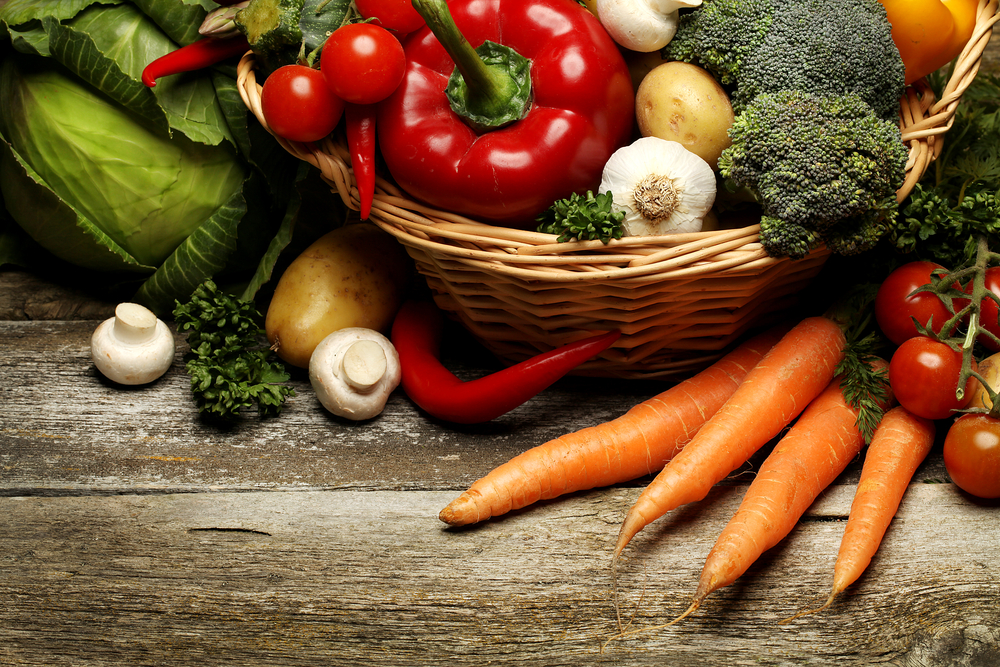Buy Local, Buy Organic
Buying local and organic food has many benefits! Organic food reduces the use of harmful chemicals, which is healthier for you and the planet. Buying local supports businesses and farmers in your community.
Your Impact
Action Steps & Tips
Introduction

Buying organic foods and local products benefits both the environment, your family and the community! Organic food is grown without chemicals that are harmful to the environment and our health. Buying local products can also reduce air and climate pollution and supports the local business and farmers in your community.
Buying organic:
-
Is good for your health
-
Reduces climate pollution from fertilizers and pesticides
-
Reduces water pollution and protects wildlife
Buying local:
-
Can reduce climate and air pollution from transportation
-
Supports local business and farmers
-
Keeps more money in the local community
Comprar alimentos orgánicos y productos locales beneficia tanto al medio ambiente como a tu familia y tu comunidad. Los alimentos orgánicos se cultivan sin muchos productos químicos, pesticidas, hormonas y antibióticos que son perjudiciales para el medio ambiente y nuestra salud. Al comprar productos locales, estás apoyando a tu comunidad. Comprar alimentos locales y orgánicos es una manera muy fácil de conseguir un gran impacto. Sigue leyendo para obtener más información sobre los beneficios de comprar alimentos locales y orgánicos, así como algunos cuantos consejos.
1Learn more about the benefits of buying local and organic
Benefits of buying organic: Organic food is grown without the many harmful chemicals like fertilizers, pesticides, hormones or antibiotics used in conventional farming. Most of these chemicals are made from fossil fuels and some, particularly fertilizers and pesticides, create a powerful climate pollution called nitrous oxide.
Many of these chemicals also have very harmful impacts on ecosystems. When it rains, fertilizers, pesticides and other chemicals from farms run into local streams and waterways and can create harmful algae blooms and other hazards for fish and wildlife. These chemicals can also end up in our drinking water.
Organic food can also be healthier! In fact, research has found that milk, cheese, and yogurt from organic cows contain over 30% more heart healthy omega-3 fatty acids than non-organic alternatives, and organic based food crops are up to 60% higher in key antioxidants.
Benefits of buying local: Buying local can reduce transportation and delivery costs, depending on the product and where it is coming from. This also reduces climate and air pollution.
Buying from locally owned businesses always supports your community! Research shows that out of $100 spent at a local business, $68 stays in the community, whereas with a non-local business that drops to $43. Locally-owned businesses invest in their surroundings, create jobs and reduce dependence on imports. This creates a healthier, more self-sufficient and resilient community.
2Tips on organic labeling
Organic labeling can be confusing. Here are a few tips on buying organic.
Look for the USDA Organic label. Organic or “natural” labeling can be confusing. To make sure you are buying certified organic products, look for the USDA organic label. USDA organic certification means that at least 95% of the ingredients are certified organic by the United States Department of Agriculture. Be wary of “made with organic” labels, as only 70% of the ingredients must be organic.
Talk with local growers at the farmers market. It is often expensive for smaller farmers to go through the process for formal organic certification. If you see a label that says “natural” without the USDA Organic label, talk with the local grower and ask about their growing practices. Some use organic growing practices without the label. Consider the information they provide and use your best judgment when purchasing.
What does a USDA Organic certification mean?
To obtain USDA organic certification farmers must follow strict practices. For USDA organic meat, the certification requires that animals are raised in more natural living conditions than necessary for conventional meats. The animals’ food must also be 100% organic and the use of antibiotics and hormones are prohibited.
Certification for organic produce calls for the soil to be clean of prohibited substances, like most synthetic fertilizers and pesticides, for three years prior to harvest. Finally, processed and multi-ingredient organic certified foods also prohibit the use of artificial preservatives, colors or flavors.
3Tips on buying organic & local
Organic foods with the most benefit. Organic products can sometimes be more expensive. If you are on a budget and need to prioritize, these foods generally have the highest levels of dangerous chemicals from conventional farming and the most benefit from buying organic:
-
Meat & Poultry: Organic meat and poultry are raised without the use of antibiotics, which helps to reduce the rise in antibiotic-resistant bacteria. Organic meat is also raised without hormones. Research suggests a strong connection between cattle raised with hormones and cancer in humans.
-
Milk: Similar to beef, organic milk avoids the hazardous hormones and antibiotics used in raising cattle.
-
Fruit: Strawberries, apples, grapes (including raisins and wine), peaches, imported nectarines, and blueberries.
-
Vegetables: Celery, spinach, sweet bell peppers, cucumbers, cherry tomatoes, potatoes, hot peppers, kale, collard greens, zucchini and lettuce.
-
Coffee
-
Chocolate
Some foods with the lowest levels of harmful chemicals from conventional farming include avocados, pineapples, onions, kiwi, cauliflower and sweet potatoes.
Tips on buying local
Look for the “local” label or location on the product packaging. When shopping, look for the "locally grown" or "locally produced” labels now used in many stores. If you don’t have these labels, check the foods you buy most often and look for the location listed on the product label. Check a few items each time you shop, soon you will know where all your products come from. Shopping at a farmer’s market is also a great way to buy local!
Buy in season. When you buy food that is in season, you are more likely to be buying local. For example, if it is winter and cold where you live, there are likely no local oranges being grown.
Eating in season also helps you to appreciate our seasons and the connection from our food to the earth. And it can save money! Out of season food is grown farther away and often costs more. To find what foods are in season for your area check out this seasonal food guide.

